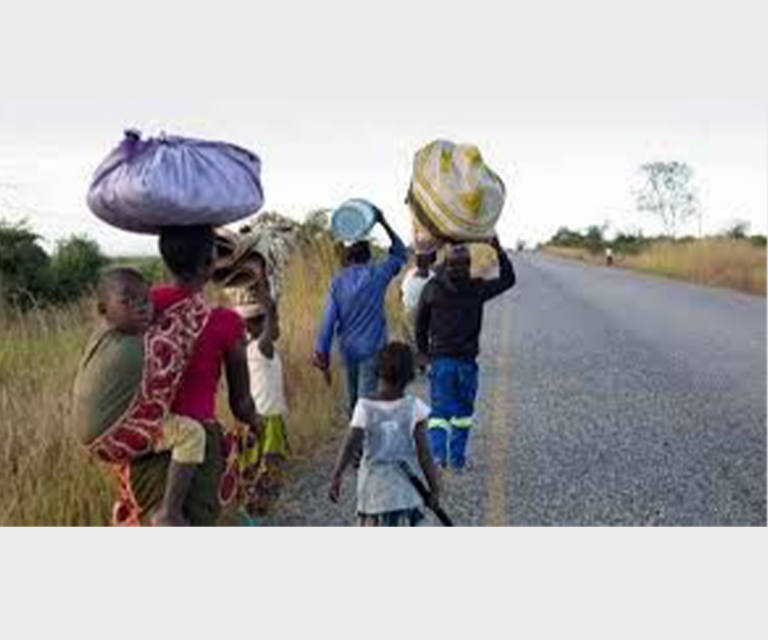Mozambique, a beautiful country known for its stunning beaches and vibrant culture, is currently facing a humanitarian crisis that’s causing quite a stir. Following the recent presidential election, nearly 3,000 people have been forced to leave their homes due to unrest. It’s a situation that’s breaking hearts and raising eyebrows across the region.
Disputed Presidential Election Results
Let’s rewind a bit to October 9th, when Mozambique held its presidential election. The ruling Frelimo party, which has been in power since the country’s independence, came out on top once again. But here’s where things get tricky – the opposition wasn’t too happy about it. They claimed the election wasn’t fair and started protesting.
Remember Venancio Mondlane? He’s a key opposition figure who was all set to address his supporters, but his speech got canceled at the last minute. Talk about a plot twist!
Protests and Unrest
Since the election results were announced, the streets of Mozambique have been anything but quiet. People have been out in force, waving placards and making their voices heard. They’re not happy with how things went down during the election, and they want the world to know it.
Sadly, these demonstrations haven’t all been peaceful. There’s been some violence, and it’s shaking up local communities. Imagine waking up one day and finding your neighborhood turned into a hotbed of unrest – pretty scary.
Refugee Influx in Eswatini
Now, here’s where things start to get even more complicated. Nearly 1,000 Mozambicans have packed up their belongings and crossed the border into Eswatini (you might remember it as Swaziland). They’re looking for safety and a bit of peace.
But life isn’t exactly easy for these folks once they arrive. Most of them end up at the Malindza Refugee Centre, which is struggling to keep up with the sudden influx. It’s like trying to fit a gallon of water into a pint glass – something’s got to give.
Refugee Influx in Malawi
Eswatini isn’t the only country dealing with an unexpected surge of guests. Malawi, another of Mozambique’s neighbors, has seen about 2,000 Mozambicans arrive in just one week. It’s like having your entire extended family show up unannounced for Thanksgiving dinner!
These refugees are so desperate to escape the troubles back home that some are even risking their lives crossing the Shire River. It’s not exactly a lazy Sunday afternoon swim we’re talking about here.
Humanitarian Challenges in Neighboring Countries
With all these people suddenly arriving, Eswatini and Malawi are feeling the pinch. It’s like when you have unexpected houseguests and realize you don’t have enough towels or toothpaste to go around. But in this case, we’re talking about necessities like food, clean water, and shelter.
The United Nations High Commissioner for Refugees (UNHCR) has put out an urgent call for more funding. They’re saying, “Hey, we need a hand here!” It’s a bit like when you’re moving house and you put out that desperate call to friends for help with the heavy lifting.
Regional Implications of the Crisis
This crisis isn’t just Mozambique’s problem – it’s sending ripples throughout southern Africa. It’s like throwing a stone into a pond and watching the waves spread out.
Neighboring countries are worried about security issues and the economic impact of hosting so many refugees. It’s a bit like when your neighbor’s house is on fire – you want to help, but you’re also concerned about your own home.
International Aid Response
The good news is that the world isn’t turning a blind eye to what’s happening. UN agencies and other humanitarian organizations are rolling up their sleeves and getting stuck in. They’re providing food, shelter, and medical care to those who need it most.
But here’s the thing – there’s still a big gap between what’s needed and what’s being provided. It’s like trying to bail out a sinking ship with a teacup – every little bit helps, but we need a bigger bucket!
Call for Urgent Action
Friends, the situation in Mozambique is serious, and it needs our attention. We need to see a peaceful resolution to the political tensions that started this whole mess. But more than that, we need to support the thousands of people who have been caught in the crossfire.
This crisis is bigger than any one country can handle alone. It’s time for the international community to step up and lend a helping hand. After all, isn’t that what friends are for?
“In the face of this growing humanitarian crisis, we must remember that every refugee is someone’s friend, someone’s family member, someone’s neighbor. Let’s treat them as we would want to be treated in their shoes.”

